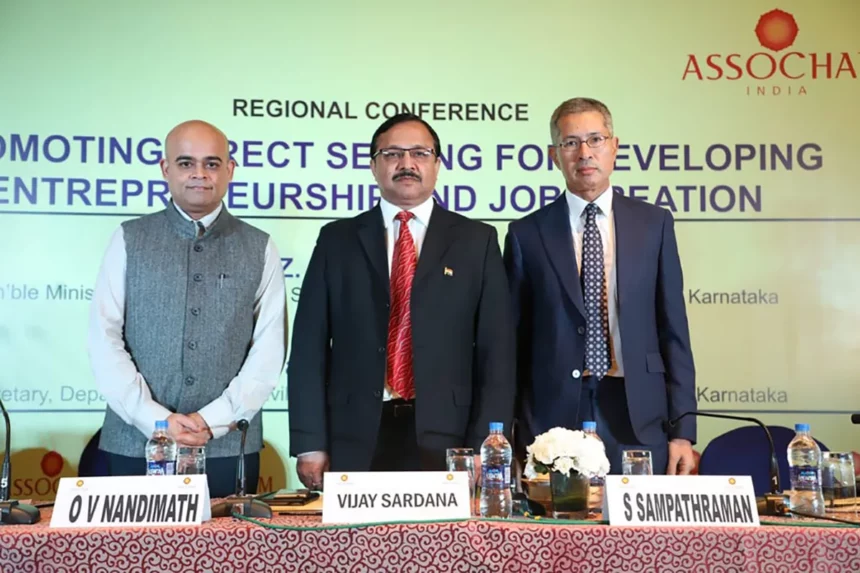ASSOCHAM’s first regional conference on Direct Selling, “Promoting Direct Selling for developing entrepreneurship and job creation” held on July 26th, 2018 at Bangalore, highlighted the socio-economic benefits of the industry and the need to put the implementation of Model Direct Selling Guidelines on a fast track mode in the state of Karnataka. The conference provided a common platform for key decision makers in the state government and industry captains to exchange views, so as to identify a roadmap for implementation of the Model Guidelines.
The Model Framework for Guidelines on Direct Selling was issued by the Ministry of Consumer Affairs, government of India in September 2016. The notification of these guidelines was a significant milestone towards clarifying the Government’s stance on the industry and the intent to regularise the Indian Direct Selling Industry. Since then, six states – Chhattisgarh, Sikkim, Telangana, Andhra Pradesh, Odisha and West Bengal – have adopted the Guidelines issued by the Central Ministry.
The key focus area of the conference was on a strong need for India to understand how other countries conform to a regulatory framework for direct selling, based on which India should also draft a law for its direct selling industry. This will create a positive impact on the Indian economy.
The industry panelists at the conference reiterated that governments and concerned authorities are unable to distinguish between genuine Direct Selling companies and pyramid / ponzi schemes, which have resulted in alleged harassment of the direct selling companies and its direct sellers. To resolve the problem, the Department of Consumer Affairs had introduced Guidelines for Direct Selling. Yet, on ground, Direct Sellers in India are facing an enormous challenge due to absence of legislation and a proper regulatory framework. The industry aims to continue creating business opportunities for the Indian youth and more self-employment opportunities for women too. The industry has potential to create over 10 million entrepreneurs by 2022 along with skill development and benefits to Indian consumers.
It was also brought to focus that the direct selling companies have a great opportunity to look at product specialisation and innovation. For highly diversified societies with varying cultures, tastes and preferences, as found in India, the right product for the right target audience – in effect, segmenting the market – would be the key! Hence, our marketing strategies need to revolve around motivated direct sellers along with specialised products and services.
According to World Federation of Direct Selling Associations (WFDSA), about 117 million people around the world are involved in this industry, out of which 74% were women. In India, of 5.1 million people involved in direct selling, 60% of them are women. The sector generated $1.5 billion sales in FY17.
The global direct selling industry in 2017 generated USD 189.6 billion in retail sales. “Both India and China have 5.1 million and 5.3 million people, respectively, who are involved in direct sales. In China, sales worth USD35 billion were generated versus USD 1.5 billion sales in India with similar number of direct sellers. Countries like South Korea and Japan, among others, too have a very significant sales numbers,” said Zaheer K Merchant, Director – Corporate Affairs, QI Ltd. According to the Indian Direct Selling Association (IDSA) survey, Karnataka generated annual sales of INR 800 crore, which is around 8% of the total market size in direct selling in India.
A FICCI-KPMG report in 2016 projected the retail sales in direct selling to reach INR 64,500 crore by 2025 and would propel a significant self-employment opportunity for 1.5 crore individuals.
More news and views of direct selling industry captains –https://www.deccanherald.com/b








